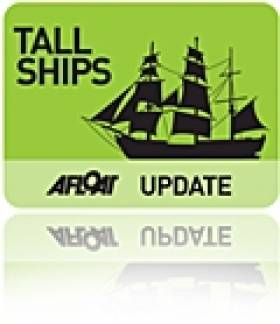Displaying items by tag: young people
Tall Ships Training Opportunities for Young People Across Ireland
#TALL SHIPS - The organisers of the Tall Ships Races visit to Dublin are inviting young people to get involved by becoming 'trainees' aboard the fleet as they race from Spain to Ireland this summer.
The 18 ships (as of last November) are set to sail from A Coruña in northern Spain to Dublin on the final leg of this year's race over an estimated ten-day period from 13-23 August.
Young people across Ireland can now apply to be trainees on board the tall ships and take part in a voyage as crew. No previous experience is necessary.
Open information days are planned for this weekend from tomorrow (Friday) 17 February to Sunday 19 February from 12pm to 6pm daily at the CHQ building in the IFSC, close to the Jeannie Johnston museum.
Anyone that is interested in taking part or receiving further information can register at www.dublintallships.ie/trainees/
Meanwhile, organisers are also making funding available for the young people of the capital.
The Dublin City Tall Ships Funding will cover the costs of 25 trainees from Dublin to sail on the ships as they race from Spain.
Any youth organisation within Dublin City Council Administrative Area can nominate members of their organisation. Alternatively, individuals may apply and seek the nomination of a youth organisation such as a youth group or community group; school or college; sports club or Scouts group.
Details about this funding programme and other opportunities are included in the information bulletin attached below.
For further information contact trainee recruitment officer Michael Byrne at [email protected].





























































